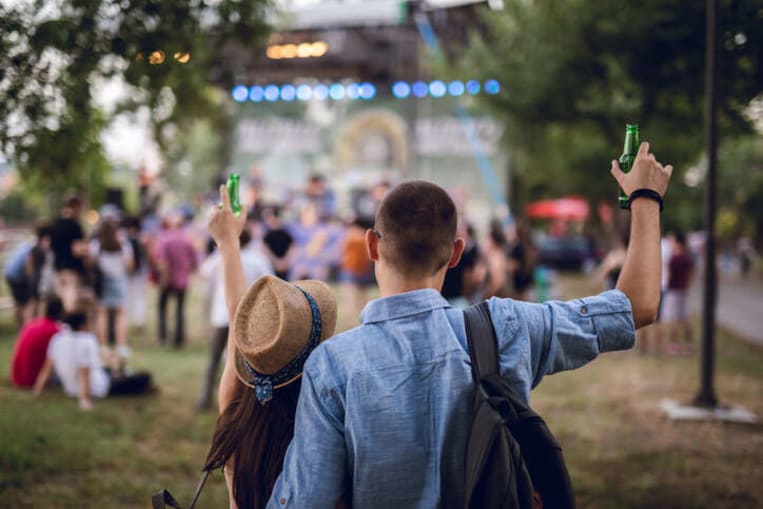
BBB Scam Alert: Fake events & phony tickets take festival goers by surprise

(Getty Images)
Many people are looking forward to fun festivals this summer. As usual, scammers are taking advantage of the building excitement. This time, they are cashing in with phony tickets—and even fake events.
What you'll learn:
-
How fake festival scams work: Learn how scammers create realistic-looking websites and ads to sell phony tickets or charge fees for events that don’t exist.
-
Red flags to watch for: Discover how to spot suspicious pricing, misleading event names, and missing contact details that could signal a scam.
-
Steps to protect yourself: Get practical tips like paying with a credit card, verifying websites, and avoiding shady resale platforms to help you steer clear of fake festival schemes.
Updated May 29, 2025 to cite a new BBB Scam Tracke report
How the scam works
You see a fantastic deal on tickets to a summer festival in your area, usually through a link on social media. The event promises live music, all-you-can-eat meals, craft beer or wine, or other fun activities.
When you click the social media link, it takes you to a professional website with fantastic pictures. You enter your credit card information to buy tickets and think you are all set. But before you buy, do a little research. Whether the event is non-existent, merely disappointing, or you just bought phony tickets, the result is the same: someone pockets your hard-earned money!
BBB Scam Tracker has received numerous reports from people who purchased fake tickets to actual events or events that have yet to materialize.
In a recent BBB Scam Tracker report, a customer reported, "A scam that is currently targeting artists and vendors by falsely using Crooked Tree Arts Center’s name as the host of an event that does not exist. We have been made aware that individuals are collecting booth fees for an event that is purportedly taking place at Crooked Tree Arts Center on MAY 23-25, JUN 13-15, JUN 27-29. However, no such event has been scheduled at this venue, and they are not affiliated with these individuals or their organization in any way. The scam appears to involve soliciting artists and vendors through email and possibly other platforms, requesting payment for booth spaces under false pretenses."
A customer in Memphis reported buying tickets for $220 for a concert: "I saw an offer for presale tickets for the group Khruangbin for a concert in May. I clicked on the links and it lead me to what looked like a legit site until I realized that they are a resellers site and had marked up the ticket prices tremendously. The prices were also in USD and the service charge was astounding. I contacted the company right away but they just dismiss and ignore. They are SCAMMERS and need to be off the market. They have scammed lots of people and it is very humiliating and stressful."
One consumer who purchased tickets to a fake beer crawl reported: “Reviews across multiple platforms make it clear that these events are at best extremely misleading or at worst canceled. No refunds are given, even when their inconsistent and mostly-unreachable customer service email address responds to confirm a refund will be provided.”
How to spot a fake festival
- Research before you buy. Search online for the festival's name and ensure the name advertised matches the website. Scammers often use names that sound similar to those of real festivals.
- Check for (working) contact information. The festival website should have a real phone number and email address.
- Watch out for prices that sound too good to be true. There is no way a festival can offer tickets at extremely low prices without losing money. If the prices are much lower than elsewhere, it's likely a scam.
What can you do?
- Pay with a credit card. You can dispute the charges if the business doesn't come through. Be wary of online sellers that don’t accept credit cards.
- Look for secure sites. The website should begin with HTTPS (the extra “s” is for security) and have a lock symbol on the address bar.
- Avoid tickets sold on Craigslist, Facebook Marketplace, and other free online listings. Scammers are skilled at providing realistic tickets and fake receipts. Check out third-party ticket sites at BBB.org before making purchases.
For more information
Read BBB's tips for buying tickets to an event. For general information on how to avoid scams, visit BBB.org/AvoidScams.
For more advice, read BBB’s tips on online shopping. If you’ve spotted an event scam, report it to BBB ScamTracker. Subscribe to BBB Scam Alerts for weekly updates about new scams.
Still Need Assistance?
Contact Your Local BBB
Your local Better Business Bureau can assist you with finding businesses you can trust. Start With Trust®.
Additional Resources
Let BBB help you resolve problems with a business
Research and report on scams and fraud using BBB Scam Tracker
Learn more about the value of BBB Accreditation